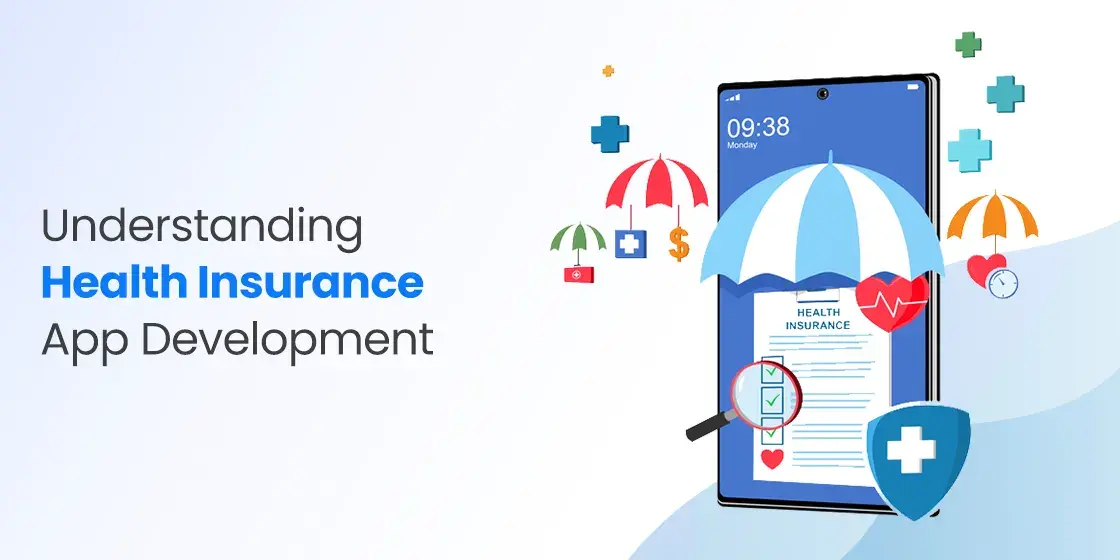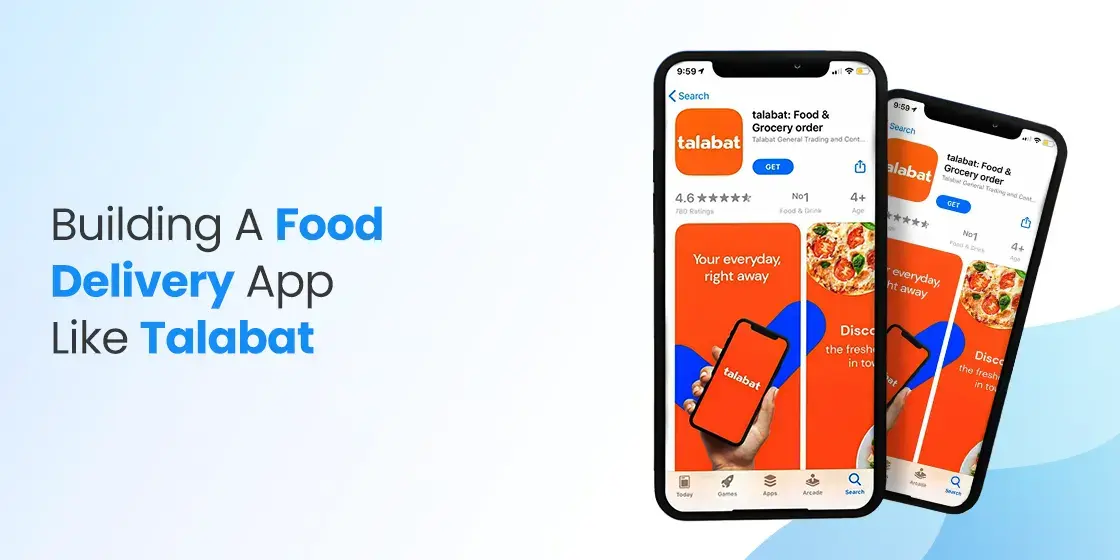Table of Content
Learn About Medical Insurance App Development in Detail Below
In an era where technological advancements continue to reshape the landscape of various industries, the healthcare sector stands at the forefront of innovation. One such groundbreaking development is the advent of health insurance apps, a digital solution poised to transform the way we access and manage our healthcare coverage. As the demand for seamless and user-friendly experiences grows, the health insurance app development emerges as a pivotal step towards a more efficient and patient-centric healthcare system.
The traditional approach to managing health insurance has often been marked by paperwork, lengthy processes, and limited accessibility. However, with the integration of mobile applications into the healthcare ecosystem, the dynamics are rapidly changing. Medical insurance app development aims to streamline the entire insurance experience, offering users the convenience of managing their policies, accessing critical health information, and even connecting with healthcare providers are all within the palm of their hand.
As we delve into the circuit of development, it becomes clear that the potential benefits can only be gained once you’ll take professional mobile app development services for insurance apps. These apps hold the promise of fostering a proactive approach to healthcare, encouraging users to prioritize preventive measures and stay engaged in their well-being. In this blog, we’ll explore the transformative power of medical insurance app development and its profound impact on the future of healthcare. Let’s start from the basics understanding what is a health insurance app and why it is gaining popularity in the market.
What is a Health Insurance App?
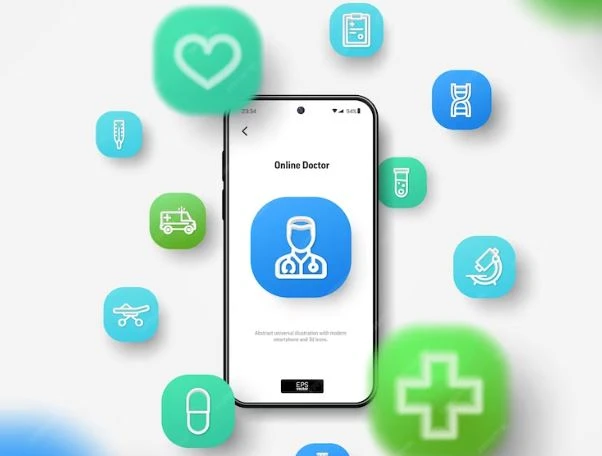
A health insurance app is a digital platform designed to facilitate and enhance the user experience within the realm of health insurance management. At its core, these applications bring the traditionally complex and paper-laden process of health insurance into the digital age, offering users a seamless and accessible way to interact with their insurance policies. Health insurance apps typically provide a range of features that empower users to navigate their coverage, understand their benefits, and efficiently handle administrative tasks.
One of the key advantages of health insurance apps is their ability to centralize and organize health-related data in one user-friendly interface. Users can easily access their policy details, track claims, and review their coverage at any time, fostering a sense of transparency and control over their healthcare journey. Additionally, many of these apps integrate innovative features, such as telehealth services, wellness programs, and personalized health insights, creating a holistic and proactive approach to healthcare management.
Behind the scenes, health insurance apps leverage cutting-edge technologies like data analytics, artificial intelligence, and secure communication protocols to ensure the confidentiality and integrity of user information. By harnessing the power of medical insurance app development, the applications not only simplify the administrative aspects of health insurance but also contribute to a more connected and responsive healthcare ecosystem.
The Rising Demand of Medical Insurance App Development
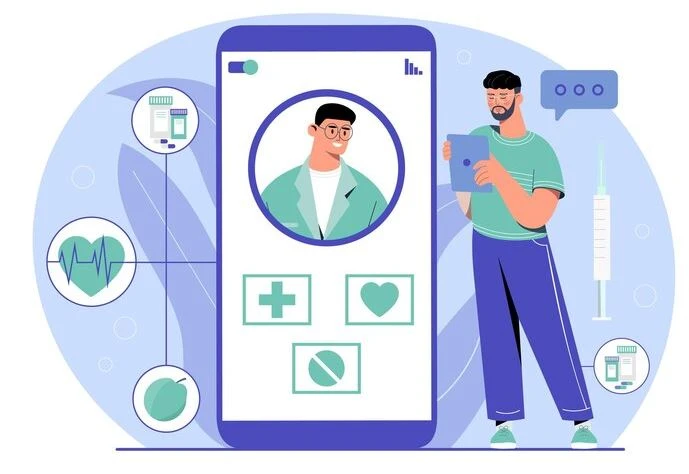
Mobile app development is experiencing unprecedented market demand due to a confluence of factors that highlight the urgent need for innovation within the healthcare and insurance sectors. One of the primary drivers is the growing consumer demand for convenient and accessible healthcare services. Individuals are increasingly seeking digital solutions that empower them to manage their health insurance policies effortlessly, access critical information on the go, and engage in their own well-being.
Moreover, the ongoing global emphasis on preventive healthcare and wellness has further fueled the demand for medical insurance app development. These applications are not merely administrative tools but comprehensive platforms that offer features such as telehealth consultations, wellness programs, and personalized health insights. By integrating these elements, health insurance apps encourage users to adopt proactive healthcare practices, fostering a culture of prevention rather than reactive treatment.
Additionally, the COVID-19 pandemic has accelerated the adoption of digital healthcare solutions, including health insurance apps, as people seek safer and more convenient ways to manage their healthcare needs. The pandemic underscored the limitations of traditional healthcare processes, prompting a paradigm shift towards remote and digital solutions. Medical insurance app development, with the ability to facilitate contactless processes, telehealth consultations, and quick access to health information, have emerged as essential tools in the evolving landscape of healthcare.
Key Types of Medical Insurance App Development
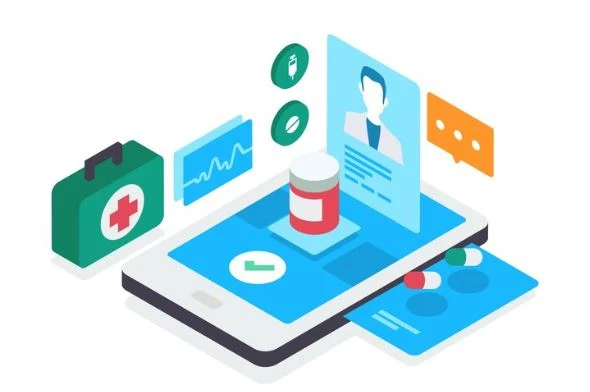
There are different types of health insurance apps currently available in the market. If you are a developer working for a health insurance client, you need to know about these types properly. They differ in features and characteristics, and are usually built for different classes of users. Let’s take a quick look at some of their common types below.
Health Insurance App for Patients
A health insurance app for patients represents a transformative leap in how individuals engage with their healthcare coverage. Designed to prioritize user convenience and accessibility, these apps serve as a comprehensive hub for patients to manage their health insurance seamlessly. Users can effortlessly navigate through their policy details, monitor claims in real-time, and gain insights into their coverage, all within the intuitive interface of the application.
Beyond administrative functionalities, medical insurance app development often integrate innovative features aimed at enhancing the overall healthcare experience. Telehealth services, for instance, allow users to connect with healthcare professionals virtually, offering a convenient and timely alternative to in-person consultations. Wellness programs, personalized health tips, and reminders for preventive screenings are commonly integrated into these apps, promoting a proactive approach to healthcare.
Health Insurance App for Doctors
For healthcare providers, a dedicated medical insurance app development can streamline and optimize various aspects of patient care and administrative tasks. These applications are designed to offer doctors and nurses quick and secure access to essential information related to patient insurance coverage. By integrating patient data with insurance details, these apps facilitate more efficient care coordination, enabling healthcare professionals to make informed decisions about treatment plans, medications, and other interventions.
Another key benefit of health insurance apps for doctors and nurses lies in the potential for improved communication and collaboration. These apps often include secure messaging systems or built-in communication platforms that enable healthcare teams to interact seamlessly. Doctors can quickly verify insurance information, check policy details, and ensure that proposed treatments align with coverage parameters.
Health Insurance App Development: Key Steps to Follow
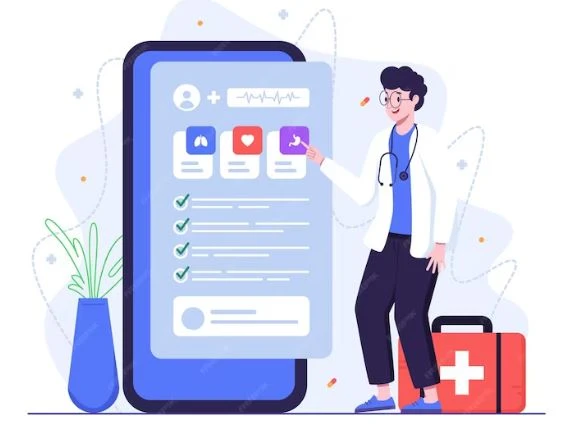
To develop a health insurance app, you need to follow a process involving multiple stages. This is important because each step has its own significance, hence you must need to pay attention on them step by step. Let’s take a quick look at the medical insurance app development below.
Comprehensive Research
First of all, you need to perform a complete market research to know what types of health insurance apps are currently being offered by the companies. This gives you a short overview about the current requirements of this industry, and how they should be met by developing a quality health insurance mobile application.
Tools Stack
Next up, you need to select a tools stack that will help you in medical insurance app development. This selection should be done smartly, keeping the core functional requirements of your project in mind. Generally, you could go for popular mobile app development tools like Flutter, Angular, Xamarin and more others for this type of project.
Start Development
After completing the research and selecting the tools stack, you need to start the health insurance app development. It is an important phase in which you need to work with complete focus to develop a quality app. It is best recommended to use agile methodology in this stage to make your development plans flexible. It works best for big projects, allowing you to handle every task with perfection.
QA and Testing
Once all the project development is completed, you’ll need to enter in the QA and testing phase next. It is an important stage in which you’ll run some tests and evaluate the performance of the app from start to finish. It is best advised to first build a plan and then run the required tests accordingly. This will streamline all the testing phase, allowing you to get positive results in the end.
Important Benefits of Health Insurance Apps
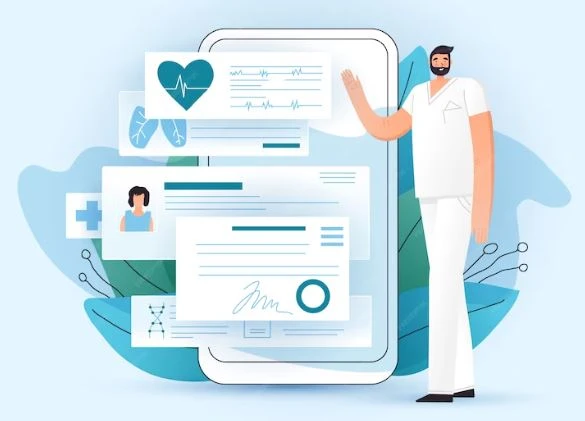
Health insurance apps brings plenty of benefits for the common people. It gives them assurance to get a proper medical coverage in case of any fatal injury or other unwanted event. Nowadays, many people are using them to buy affordable insurance plans that falls under their controllable budget. Here are some of the core advantages of using these apps.
Live Insurance Information
Mobile applications play a pivotal role in keeping policyholders well informed about the dynamic aspects of their coverage. These apps offer a comprehensive suite of features, including real-time updates on policy changes, claim statuses, and other critical insurance-related information. By seamlessly integrating these functionalities, users gain immediate access to the latest tech trends, allowing them to stay abreast of any alterations in their coverage terms.
The advantages of having real-time updates extend beyond mere convenience, as users can proactively manage their healthcare journey. By promptly receiving information on policy changes, individuals can assess the impact on their coverage, understand potential financial implications, and take necessary actions, ensuring that their healthcare needs align with the evolving parameters of their insurance policies.
Highly Convenient
Mobile apps dedicated to health insurance provide users with a wealth of essential information, ensuring that critical healthcare and insurance details are readily available at their fingertips. This heightened level of accessibility offers users a diverse array of functionalities, enabling them to swiftly assess the specifics of their coverage, make informed comparisons between available insurance plans, identify in-network healthcare providers, and retrieve comprehensive insurance information at their convenience.
The versatility of medical insurance app development further extends the user’s capacity to make well-informed decisions about their healthcare. With the ability to quickly check coverage details, users gain insights into the scope of their insurance plans, facilitating a more nuanced understanding of the benefits available to them. Simultaneously, the option to compare different insurance plans equips individuals with the tools to assess alternatives and choose coverage that aligns most effectively with their unique healthcare needs.
Single Data Storage
Health insurance app development offer users a unified and synchronized data storage system that exhibits seamless integration capabilities with Electronic Health Records (EHR), Electronic Medical Records (EMR), third-party platforms, and the internal systems employed by healthcare providers. This comprehensive integration goes beyond mere data accessibility, providing users with a holistic view of their health information across various platforms.
Furthermore, mobile health insurance apps prioritize the paramount concern of data security. Employing advanced encryption protocols and robust security measures, these apps ensure that users’ sensitive health information is stored securely on the cloud. This commitment to data security not only aligns with regulatory standards but also instills a sense of confidence in users, making them more willing to share their personal information.
Less Paperwork
Health insurance app development also helps to reduce manual paperwork. Generally, companies like to collect and store all the data in a documented format. This is the preferred practices of many companies, however, it carries serious risks of losing data as well. Any sudden drastic event can erase all the documents, and thus the records of thousands of customers with itself. This is where you need to work with a documented-free approach, as it does not carry any risk of failure.
With the help of health insurance apps, you can easily stay away from this tension. These apps allow you to store all the data on a cloud center which is very secure and advanced. This way, your hassle to manage hundreds of documents gets minimized, allowing you to pay attention on the more important tasks.
Insurance Information
Insurance apps provide a quick way to the users to see the latest policy information. Gone are the days when people have to visit the office of the insurance companies to know about the updated policy. With the introduction of insurance apps, this problem was resolved immediately. These apps have helped users to see all the insurance policy information in a glance. It allows them to access the policy from anywhere without necessarily requiring any application or grant.
By understanding the insurance policy thoroughly, users can make informed decisions related to the approval or registration of their names in the insurance plans. So, having an insurance mobile app is pretty important, as it helps to educate customers properly about the insurance plans.
Cost of Medical Insurance App Development
The cost of health insurance app development depends on various factors. It is something that changes from time to time due to varying pricing standards of the dev industry. The most important thing that decides the cost of these apps is the complexity of features. If an app requires different technical features, then it will definitely become costly, otherwise the pricing will remain in an affordable bracket.
Generally, the pricing of cross platform app development starts from $10000-$15000 per project. This cost can increase more if the project has got technical complexities. Furthermore, the deadline of the project also makes differences in the pricing, as app development required on a shorter timeframe becomes more costly.
Frequently Asked Questions
| What is a health insurance app? A health insurance app provides users complete information about their insurance plan. It lets them know about various things such as how much budget is provided and which type of hospitals are covered in the plan. |
| Why health insurance apps are gaining popularity? Health insurance apps are getting popularity in the market because people are using them to buy insurance plans. They want to cover their healthcare expenses in the future, which is why they are looking for the best apps that are providing insurance plans. |
| Which type of tools can be used in health insurance app development? You can use different types of tools and technologies in the development of health insurance apps. It includes popular app development frameworks like Angular, Xamarin, Flutter, and more others. |
Final Words
That takes us to the end of this blog in which we have discussed about health insurance app development in detail. Being a developer, you need to know how to develop this app professionally. It is one of the most demanded apps in the market today, and companies are actively looking for skilled developers to create this app. This blog has discussed some important tips related to medical insurance app development, as well as core benefits of using this app.
Meanwhile, if you are looking for an agency that could help you to develop advanced health insurance apps, get in touch with us today. We will ensure to develop quality cross platform apps for your business, rightly as per the given requirements.

Empower your digital journey with StruqtIO - Your dedicated partner for cutting-edge custom software development, innovation, and digital transformative solutions. Harness the power of technology to elevate your business and redefine your digital landscape today.
